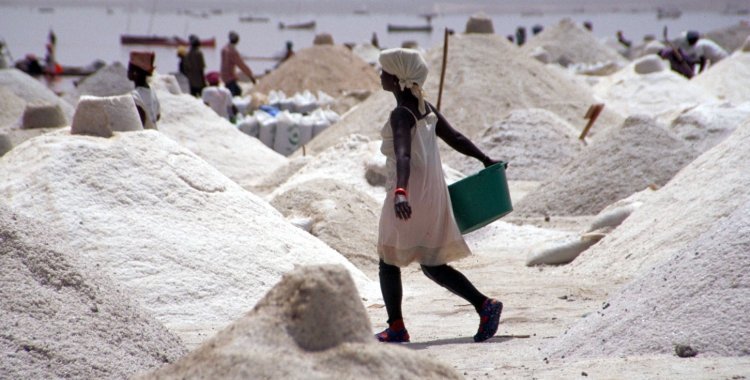Although Benguela is the largest producer of sea salt at a national level, the Cabo Negro region (Tômbwa, in Namibe) has also shown great potential in terms of salt production.
Tottas Garrido, president of the Angola Salt Producers Association (Aprosal), said that "the domestic production of salt in the country has already reached self-sufficiency for human consumption, because 80 percent of productivity has already been reached".
Speaking to Jornal de Angola, the official explained that last year the target set by the 2018-2022 National Development Plan for salt production was 160,000 tons, and Aprosal produced a total of 140,000 tons of sea salt.
"We are confident that we will reach the goal, because there is the possibility that some members will open new fields for sea salt extraction still in the current year," he advanced.
For now, the association is betting on the production of salt to encourage the food industry, companies that produce cleaning goods, and livestock farmers.
Tottas Garrido also made it known that the oil sector will also buy salt from the national market and that "a new cycle to stimulate the salt sector" will be launched.
He admitted that the business with the oil sector will help to improve the economic panorama of several companies in the salt area, once the imports of large quantities of salt will decrease.
"We had a request of 1500 tons of salt with a very specific specification for the oil industry and we, within the association, were able to meet the clients' demands without major constraints", he stated.
The responsible indicated that Aprosal sold to the Kwanda Base, in Soyo, 140 thousand tons of sea salt for 250 million kwanzas. He explained that the packaging and transportation companies benefited from this business.
To deliver the product, Tottas Garrido explained that a kind of consortium was created: the salt was delivered in 12 days, involving more than 50 transport trucks from Namibe, Benguela and Kwanza Sul. "The whole operation ran successfully," he indicated.
He considered that only with standards that value natural resources and with ways to boost the national supply chains will it be possible to promote competitiveness in the country, which will increase the levels of national production, reducing the volume of imports.
The electrification of the fields and the improvement of salt for the food industry are some of the measures that should be adopted so that the salt industry grows, he indicated, adding that the sector is restructuring and that the only way out is to implement an electrification system in the production poles.
"The association of salt producers continues to gather synergies to support the materialization of this project in the shortest period of time. The entrepreneurs spend hundreds of liters of diesel/day to keep the pumps working in the production fields", he added.







